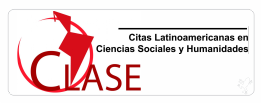Pareceres dos administradores da educação sobre o impacto das suas características de liderança no compromisso mobbing e organizacional dos professores
Palavras-chave:
Administradores da educação, características de liderança, assédio moral, compromisso organizacional.Resumo
Esta pesquisa foi realizada com o padrão de pesquisa qualitativa e no modelo de triagem, a fim de identificar os estilos de liderança dos gestores de educação e o comprometimento organizacional e mobbing exposto pelos professores. A partir das técnicas de pesquisa qualitativa, utilizou-se a entrevista semiestruturada e a análise documental para a coleta de dados. Os dados gerados indicaram que os estilos de liderança dos administradores escolares têm grande impacto nos níveis de comprometimento organizacional e experiência de mobbing dos professores. Os resultados da pesquisa têm grande importância, uma vez que são considerados importantes para a identificação de fatores negativos nos compromissos organizacionais dos professores e para o aprimoramento dos compromissos organizacionais. Em consideração aos resultados da pesquisa, as deficiências no conhecimento sobre os estilos de liderança e liderança, além do baixo comprometimento organizacional, devem ser levadas em consideração. As recomendações desenvolvidas após os resultados são consideradas benéficas para a prevenção de futuros comportamentos negativos entre os administradores e professores da escola e as circunstâncias negativas associadas.
Downloads
Referências
Allen, N.J., Meyer, J.P. (1991). A Three-Component Conceptualization of Organizational Commitment. Human Resource Management Review. 1(1), pp. 61-89.
Araújo, M.S., Elmes Mclntyre, S., Mendonca Mclntyre, T. (2010). Bullying at Workplace: Prevalence, ?ndividual and Organizational Consequences. 6.th International Conference on Workplace Bullying-Sharing Our Knowledge, Abstracts, Institut Sante et Societe, Montreal-Canada, 4-6 June, pp. 202-205.
Bartels, L.K., Harrick, E., Martell, K., Strickland, D. (1998). The relationship between ethical climate and ethical problems within human resource management. Journal of Business Ethics, 17(7), pp. 799–804.
Blasé, J. (2002). The dark side of leadership: Teacher perspectives of principal mistreatment. Educational Administration Quarterly, 38(5), pp. 671–727.
Boyle, G.J., Borg, M.G., Falzon, J.M., Baglioni, A.J. (1995). A structural model of the dimensions of teacher stress. British Journal of Educational Psychology, 65(2), pp. 49–67.
Bulutlar, F., Öz, E.Ü. (2009). The effects of ethical climates on bullying behavior in the workplace. Journal of Business Ethics, 86, pp. 273–295.
Byington, J.R., Johnston, J.G. (1991). Influences on Turnover of Internal Auditors, Internal Auditing, 7(2), pp. 3-10.
Capel, S.A. (1991). A longitudinal study of burnout in teachers. British Journal of Educational Psychology, 61(1), pp. 36–45.
Celep, C. (2000). Organizational Devotion and Teachers in Education. Ankara: Memory.
Celep, C. (2004). Transformational Leadership. Ankara: Sudden Publishing.
Cemalo?lu, N. (2007). Investigation of School Leaders' Leadership Styles in Terms of Various Variables. Turkish Journal of Educational Sciences, 5(1), pp. 73–112.
Cemalo?lu, N. (2007). The Inevitable Problem of Organizations. Bilig, 42, pp. 111–126.
Cemalo?lu, N., Ertürk, A. (2007). Investigation of Mobbing Actions Exposed by Teachers in Terms of Gender. Turkish Journal of Educational Sciences, 5(2), pp. 345-362.
Cemalo?lu, N., Ertürk A. (2008). Direction of Intimidation Exposed by Teachers and School Principals. Bilig Magazine, 46, pp. 67-86.
Chow, I.H., Lo, W.C., Sha, Z., Hong, J. (2006). The impact of Developmental Experience, Empowerment, and Organizational Support on Catering Service Staff Performance. International Journal of Hospitality Management, 25, pp. 478-495.
Cullen, J.B., Parboteeah, K.P., Victor, B. (2003). The effects of ethical climates on organizational commitment: A two-study analysis. Journal of Business Ethics, 46, pp. 127–141.
Davenport, N., Schwart, R.D., Eliot, G.P. (2003). Mobbing: Emotional Abuse ?n The American Workplace. (Translated by Osman Cem Önertoy). Istanbul: System.
Dick, R., Wagner, U. (2001). Stres and Strain ?n Teaching: A Structural Equation Approach. British Journal of Educational Psychology, 71(4), pp. 243- 259.
Dupuy, P. (2010). The Relationship Among Distributive and Procedural Justice and Correctional Life Satisfaction, Burnout, And Turnover Intent: An Exploratory Study. Journal of Criminal Justice, 38(1), pp. 7-16.
Einarsen, S. (1999). The nature and causes of bullying at work. International Journal of Manpower, 20(1-2), pp. 57-69.
Elkins, A. (1980). Management Structures, Functions and Practices. Massachusetts: Addison-Wesley Publishing.
Ertürk, A. (2005). '' Mobbing Actions Exposed by Teachers and School Administrators in the School Environment (Example of Ankara Primary Schools) ''. (Published master thesis). Gazi University Institute of Educational Sciences, Ankara.
Goffee, R., Jones, G. (2000). Corporate Culture. Istanbul: Kapital Medya A.?.
Gündüz, H.B., Y?lmaz, Ö. (2008). Opinions of Teachers and Administrators Regarding Mobbing Behaviors in Secondary Education Institutions (Example of Düzce province). Journal of National Education, 37(179), pp. 269- 282.
Hoel, H., Faragher, B., Cooper, C. (2004). Bullying Is Detrimental to Health, But All Bullying Behaviours Are Not Necessarily Equally Damaging. British Journal of Guidance and Councelling, 32(3), pp. 367-387.
Hoosen, I.A., Callaghan, R. (2004). A survey of workplace bullying of psychiatric trainees in the West Midlands. Psychiatric Bulletin, 28, pp. 225–227.
Hubert, A., Veldhoven, M. (2001). Risk sectors for undesirable behavior and mobbing. European Journal of Work and Organizational Psychology, 10(4), pp. 415–424.
Karasar, N. (1994, 2010). Scientific research method. Ankara: 3A Research Education Consulting Limited.
K?l?nç, A.Ç. (2010). The Relationship Between School Administrators' Level of Showing Ethical Leadership Behaviors and Organizational Trust and Intimidation Experienced by Teachers. (Unpublished Master's Thesis). Gazi University / Institute of Educational Sciences, Ankara.
Koç, H., Yavuz, E. (2007). A Research on the Effects of Demographic Factors on the Organizational Commitment of Teachers Lambert, E.G., Hogan, N.L., Jiang, S., Elechi, O., Benjamin, B., Morris, A., Laux, J. M., Journal of Public-Labor Law and Economics, 9(4), pp. 23-25.
Legard, R., Keegan, J., Ward, K. (2003). 'In-depth interviews', in Qualitative research practice. A guide for social research students and researchers, Sage, London, pp. 138-169.
Leong, C.S., Furnham, A., Coope,r, C.L. (1996). The Moderating Effect of Organizational Commitment On the Occupational Stress Outcome Relationship. Human Relations, 49, 1345-1361.
Lewis, D. (2004). Bullying at work: The impact of shame among university and college lecturers. British Journal of Guidance and Counseling, 32(3), pp. 281–299.
Leymann, H. (1990). Mobbing and psychological terror at workplaces. Violence and Victims, 5, pp. 119–126.
Luthans, F., Back, D., Taylor, L. (1992). Organizational commitment: Analysis of Antecedents. Human Relations. 40 (4), pp. 125-127.
Marshall, C., Rossman, G.B. (1999). Designing qualitative research, 3, pp. 21-54.
Matthiesen, S.B. (2006). Bullying at work, antecedents and outcomes. (Unpublished doctoral dissertation). University of Bergen, Bergen, Norway.
Mulki, J.P., Jaramillo, J.F., Locander, W.B. (2008). Effect of ethical climate on turnover intention: Linking attitudinal- and stress theory. Journal of Business Ethics, 78(4), pp. 559–574.
Mulki, J.P., Jaramillo, J.F., Locander, W.B. (2009). Critical role of leadership on ethical climate and salesperson behaviors. Journal of Business Ethics, 86(2), pp. 125–141.
O’Driscoll, M., Beehr, T. (1994). Supervisor behaviors, role stressors and uncertainty as predictors of personal outcomes for subordinates. Journal of Organizational Behavior, 15(2), pp. 141–155.
Peterson, D. (2002). Deviant workplace behavior and the organization’s ethical climate. Journal of Business and Psychology, 17(1), pp. 47–61.
Sa?lam Çiçek, A. (2008). Teachers' Views on Mobbing (Psychological Violence) in Primary Schools. Journal of Educational Research, 32, pp. 133-142.
Salin, D. (2003). Ways of Explaining Workplace Bullying: A Review of Enabling, Motivating and Precipitating Structures and Processes in The Work Environment. Human Relations, 56(10), pp. 1213–1232.
T?naz, P. (2006). Psychological harassment in the workplace. Work & Society, 2006/4.
Turan, S. (2002). Organizational climate and organizational commitment: A study of human interactions in Turkish public schools. Educational Planning, 14(2), pp. 20–30.
Vandekerckhove, W., Commers, M.S.R. (2003). Downward Workplace Mobbing: A Sign of the Times? Journal of Business Ethics, 45, pp. 41-50.
Vartia, M. (1996). The sources of bullying-psychological work environment and organizational climate. European Journal of Work and Organizational Psychology, 5(2), pp. 203–214.
Weeks, W.A., Nantel, J. (2004). Corporate codes of ethics and sales force behavior: A case study. Journal of Business Ethics, 11(10), pp. 753–760.
Ya?c?. E., Uluöz, T. (2017). “Assessment of the Relation Between the Leadership Styles of School Administrators and Mobbing Experience Levels of Teachers and Their Organisational Commitment”, Eurasia Journal of Mathematics, Science and Technology Education.
Y?ld?r?m, A., ?im?ek, H. (2011). Qualitative research methods in the social sciences. 8. Edition. Ankara: Distinguished Publishing.

























